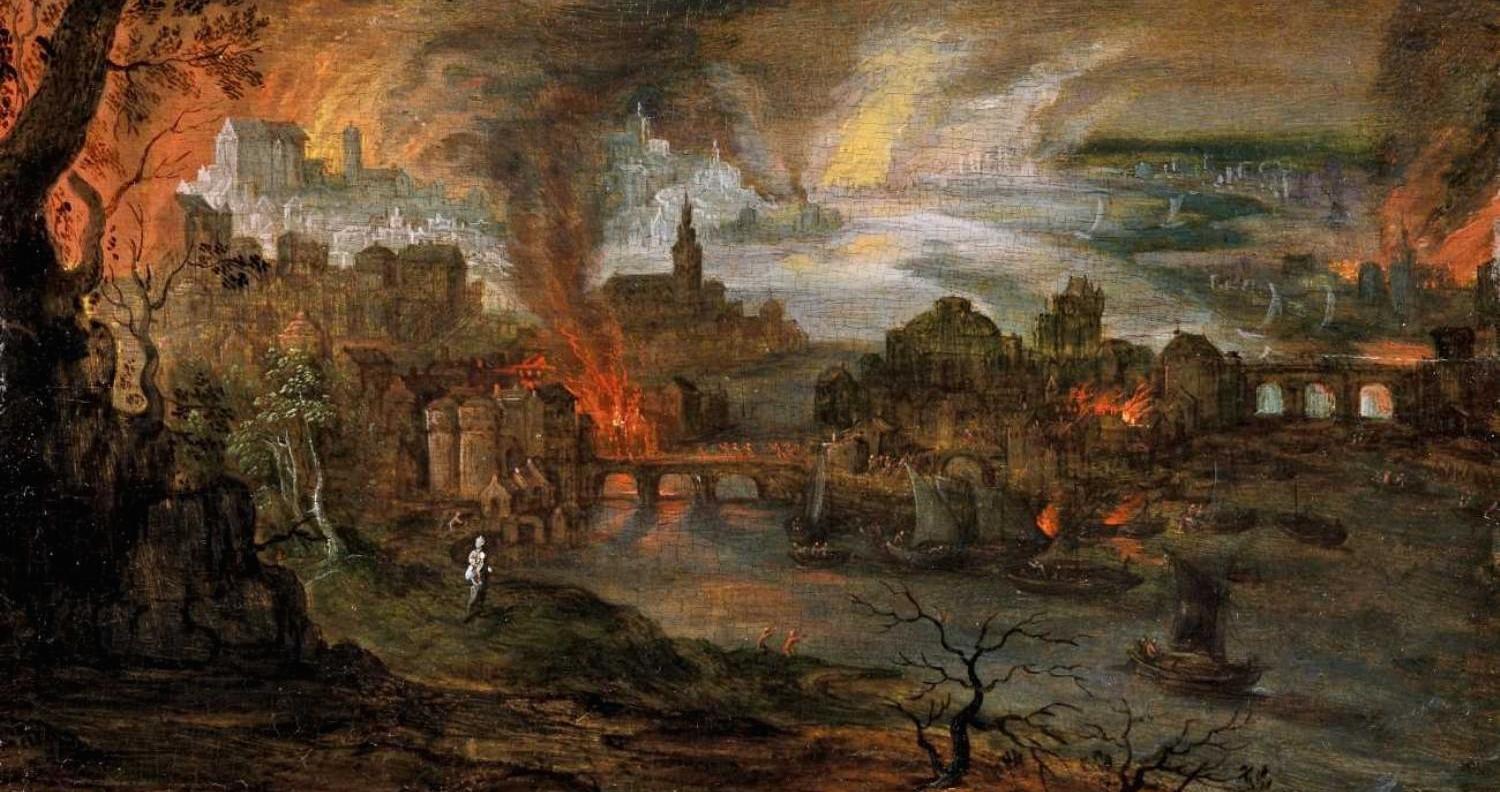Commentary on Parashat Vayera, Genesis 18:1-22:24
Parashat Vayera centers on a phenomenal moment in Jewish tradition: the negotiation between God and Abraham about the fate of Sodom and Gomorrah. By all accounts, the people of the doomed city do not have a lot going for them. Ezekiel enumerates their sins, saying, “She and her daughters were arrogant, overfed and unconcerned; they did not help the poor and needy. They were haughty and did detestable things before me” (Ezekiel 16:49-50).
But Abraham fights for them, claiming that there must be some number of righteous people within the gates. He asks, “Will You sweep away the innocent along with the guilty?…Far be it from you to do a thing like that!…Shall not the Judge of all the earth deal justly?” (Genesis 18:20-25).
Abraham challenges God. He advocates for the people of the city and for God’s own moral standing as a God of justice. Here Abraham demonstrates that he is iconoclastic, thwarting the traditional power dynamic between divine and devotee and bringing morality into the debate of action.
In a Midrash, the rabbis characterize this remarkable interaction as prayer. Discussing the importance of kavanah mindfulness or intention–during prayer, the rabbis declare that Abraham is the highest exemplar. The midrash points to this story, saying “…And nobody had kavanah in their prayer like our father Abraham, which we see from the fact that he said: Far be it from you to do a thing like that!” (Midrash Tanhuma, Haye Sarah 1). What is it about this kind of hutzpah clappei shamayim, challenging the heavens–or what today we might call “speaking truth to power”–that the rabbis see as the ultimate spiritual expression?
With your help, My Jewish Learning can provide endless opportunities for learning, connection and discovery.
Achieving Genuine Prayer
Genuine prayer requires a combination of openness and hutzpah–the strength of mind to honestly engage with what is within and around us, and the strength of imagination to see how it might be different. Abraham’s intense focus on approaching the world in this manner is a type of perpetual prayer. And in this case, he was able to push even God to do the same.
Rabbi Abraham Joshua Heschel, theologian, civil rights and anti-war activist, also found great inspiration in using prayer’s directed introspection as an impetus toward worldly engagement. His words describing prayer’s crucially confrontational nature are inscribed in the front cover of my siddur:
Prayer is meaningless unless it is subversive, unless it seeks to overthrow and to ruin the pyramids of callousness, hatred, opportunism, falsehoods. The liturgical movement must become a revolutionary movement, seeking to overthrow the forces that continue to destroy the promise, the hope, the vision.
Prayer in the News
We saw this revolution of prayer during the fall of 2007 when the images of monks marching in the streets of Burma against the military government, being beaten and killed, shook the world. Though such brutality against anyone should enrage us and break our hearts, there was something profoundly painful about those particular images: the prayerful claiming their power by simply marching, daring to use their feet in the face of weaponry. Seeing those images, I was certain their strength to do so was rooted in their kavanah. We have the opportunity to use this kavanah every time we pray.
Though we can only dream of relating to God as Abraham did, our liturgy reminds us that we too can pray for justice. Prayers aimed to subvert oppressive systems and challenge the status quo can be found throughout the siddur. Prayers that the hungry should be fed and the naked clothed seek to break the chains of global capitalism that leave millions starving and unprotected. Prayers that the sick will be healed and that the dead will rise challenge the circle of life we believe to be natural. If we can challenge the very systems of creation, davka–how much more so–can we challenge those who claim the authority of God: the modern pharaohs and the juntas.
When we engage in this exercise of imagining the unimaginable, we gain energy and vision in our work for change. When we follow our father Abraham’s example and dare to speak truth to power, our activism is spiritual expression of the highest form. May we have the chutzpah to act together toward “the promise, the hope, the vision.”
Provided by American Jewish World Service, pursuing global justice through grassroots change.
Midrash
Pronounced: MIDD-rash, Origin: Hebrew, the process of interpretation by which the rabbis filled in “gaps” found in the Torah.



